What is a modular Design agency? The Future of Hiring External Creative Expertise?
Imagine having expert design skills at your fingertips, ready to tackle any challenge at a moment’s notice. No scope limits, no lengthy negotiations – just boundless creative power. Too good to be true? Well, maybe not. I believe we are entering the age of Modular Design Services, where flexibility meets continuous improvement.
This article explores the inner workings of Modular Design Services and how they could change the way companies approach external design forever.
Executive Summary
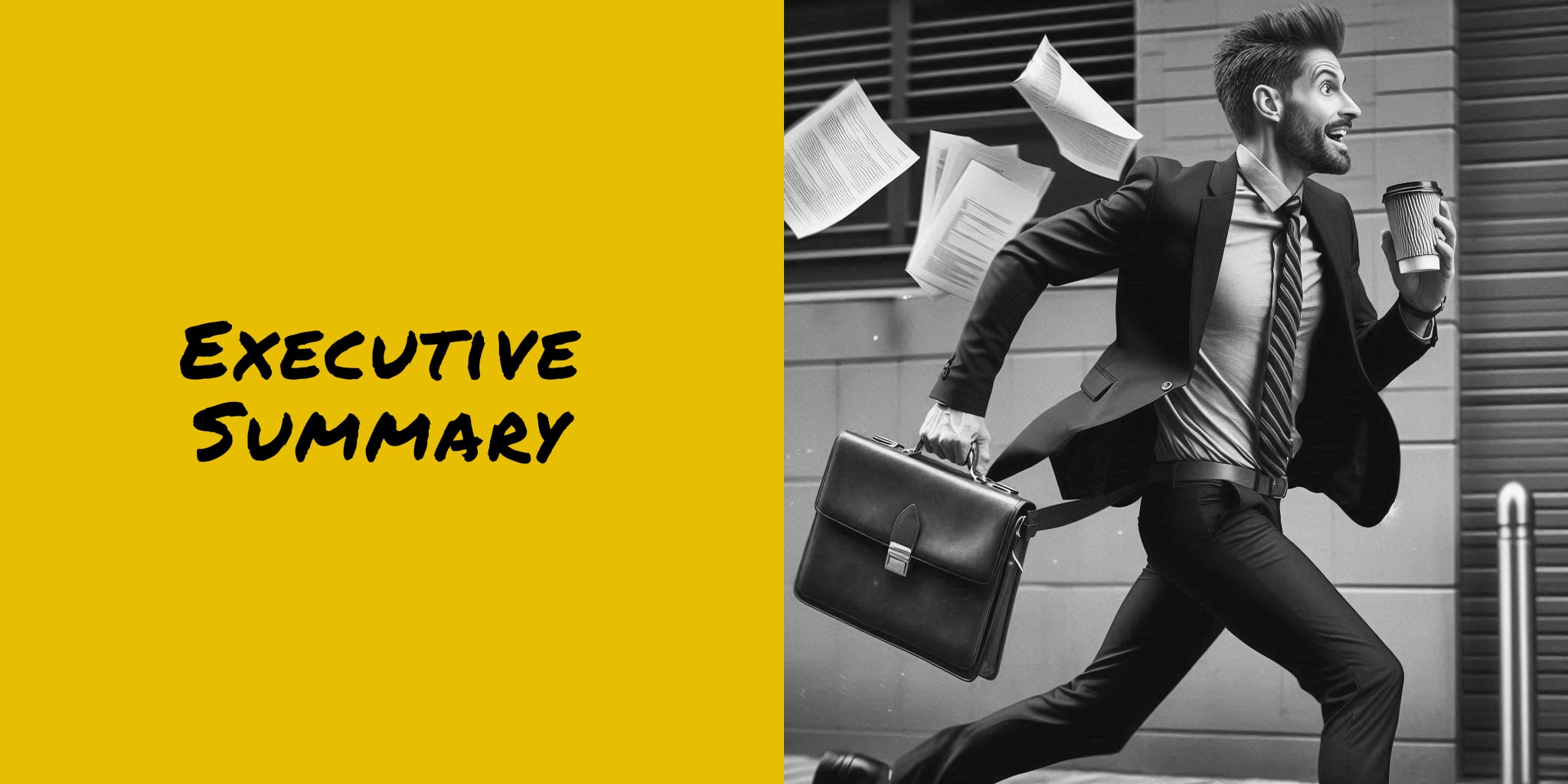
Modular Design Services offer a new way of accessing external design talent, enabling companies to better integrate and utilise external design expertise, while being particularly flexible, scalable and cost-effective.
Modular Design Agencies combine the responsiveness and cost structure of an in-house team with the comprehensive expertise of a multi-service agency and the agility of freelancers.
Key points:
- Modular Design Services are subscription-based, offering ‚unlimited‘ access to the skills of external creatives
- Increased flexibility to adapt to changing project needs and operational capabilities
- Continuous design support without project-based constraints
- Cost-effective alternative to maintaining a full in-house design team
Ideal for:
- Brand-driven companies
- Innovation-driven companies
- Organisations lacking specific design capabilities
- Companies striving for continual improvement
Modular Design Services empower businesses to drive consistent evolution by enabling them to continually explore new ideas and address every aspect of their brand, product and customer experience.
A New Kind Of Agency
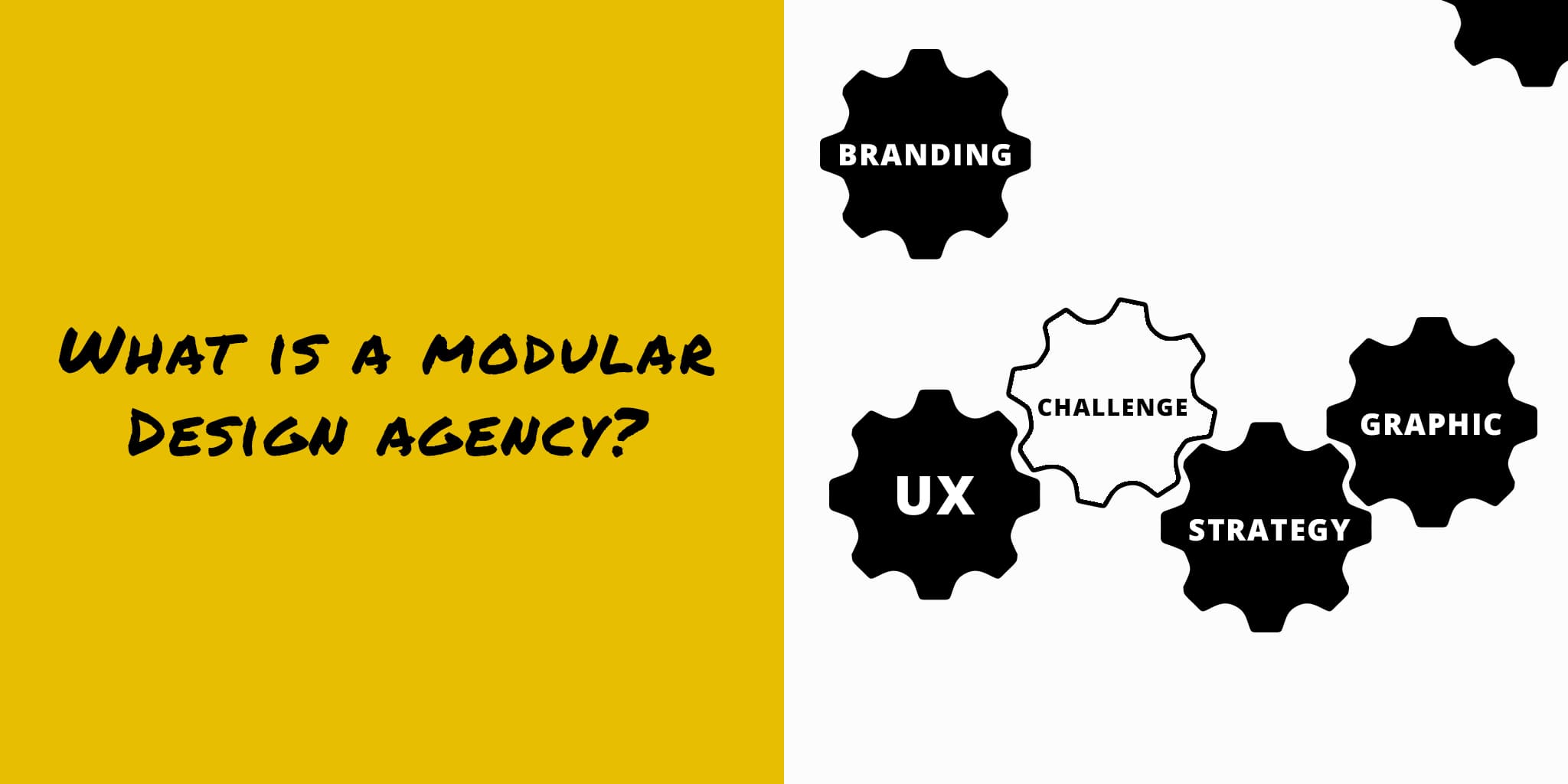
Providers of Modular Design Services (hereafter referred to as Modular Design Agencies) differ from traditional agencies and freelancers by operating on a subscription basis rather than project-by-project.
Instead of planning and invoicing design tasks within individual projects, Modular Design Agencies offer clients „unlimited“ access to specific designers and their skills, allowing them to use their expertise flexibly without the constraints of project-based work.
In other words, it’s a bit like adding individual remote creatives to your team that you can ask anything at any time, without the associated overheads.
Different from regular subscription-based design services, Modular Design Agencies offer a wide range of design disciplines. For example, they may offer not only a graphic design subscription but also UX design, industrial design, animation and strategy as individually subscribable services.
Clients can add modules to their subscription as they need them (e.g. a coding module or a graphic design module), giving them „unlimited“ access to the creatives of their choice for a fixed monthly fee.
Purpose
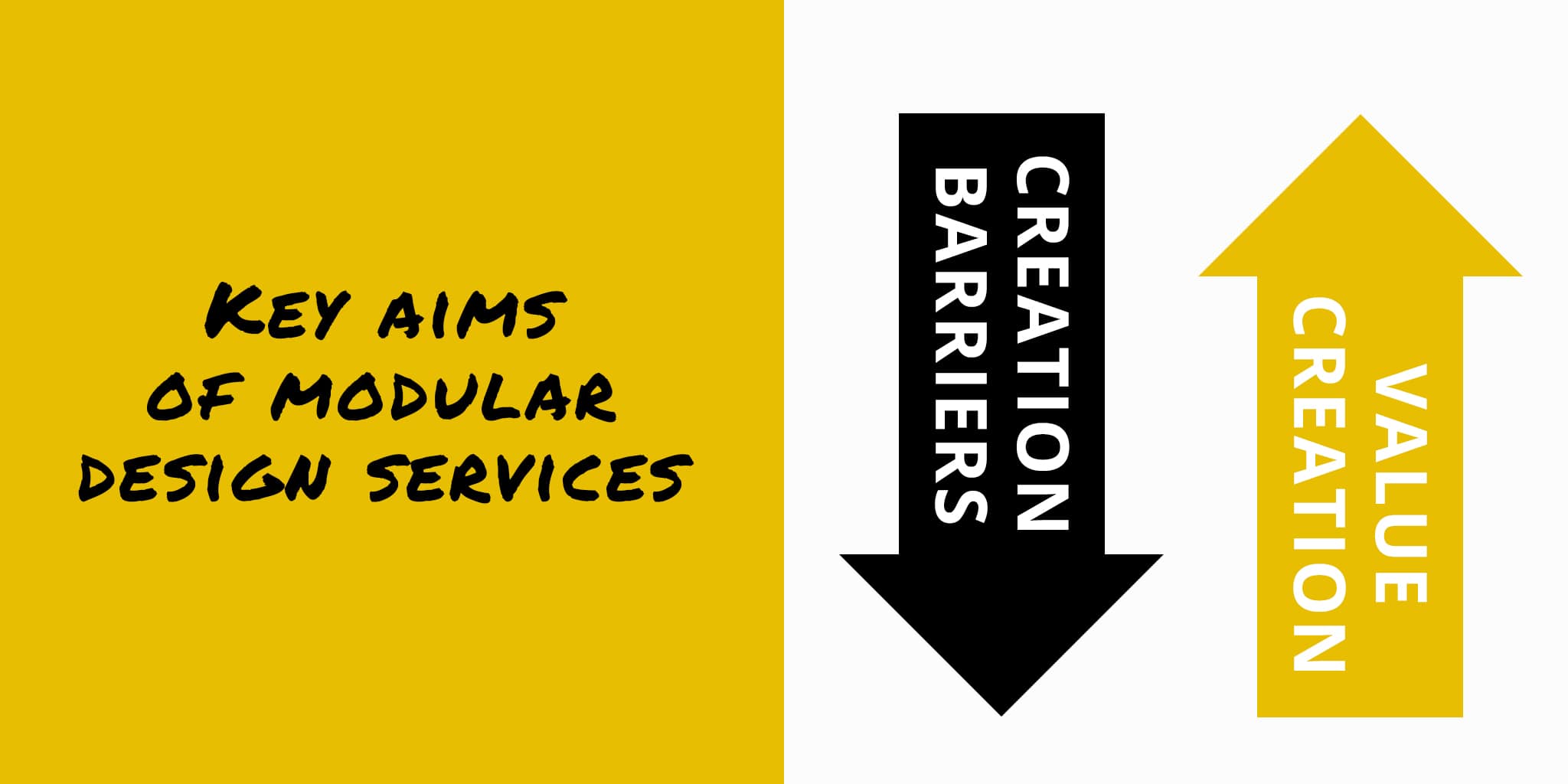
In summary, the overarching goal of modular design services is to foster constant improvement. By providing ongoing, low-barrier, on-demand access to diverse creative expertise, this model empowers businesses to integrate creative thinking into virtually all workflows and decision-making processes.
Key aims:
- Enable businesses to access a diverse range of design skills on an ongoing basis for continuous improvement.
- Empower businesses to be more agile and responsive in their design practices, quickly iterating on new insights and exploring new ideas.
- Free clients and designers from the stress of negotiating prices for each new challenge or project, putting the goal of creating a great result at the centre of the conversation.
Benefits
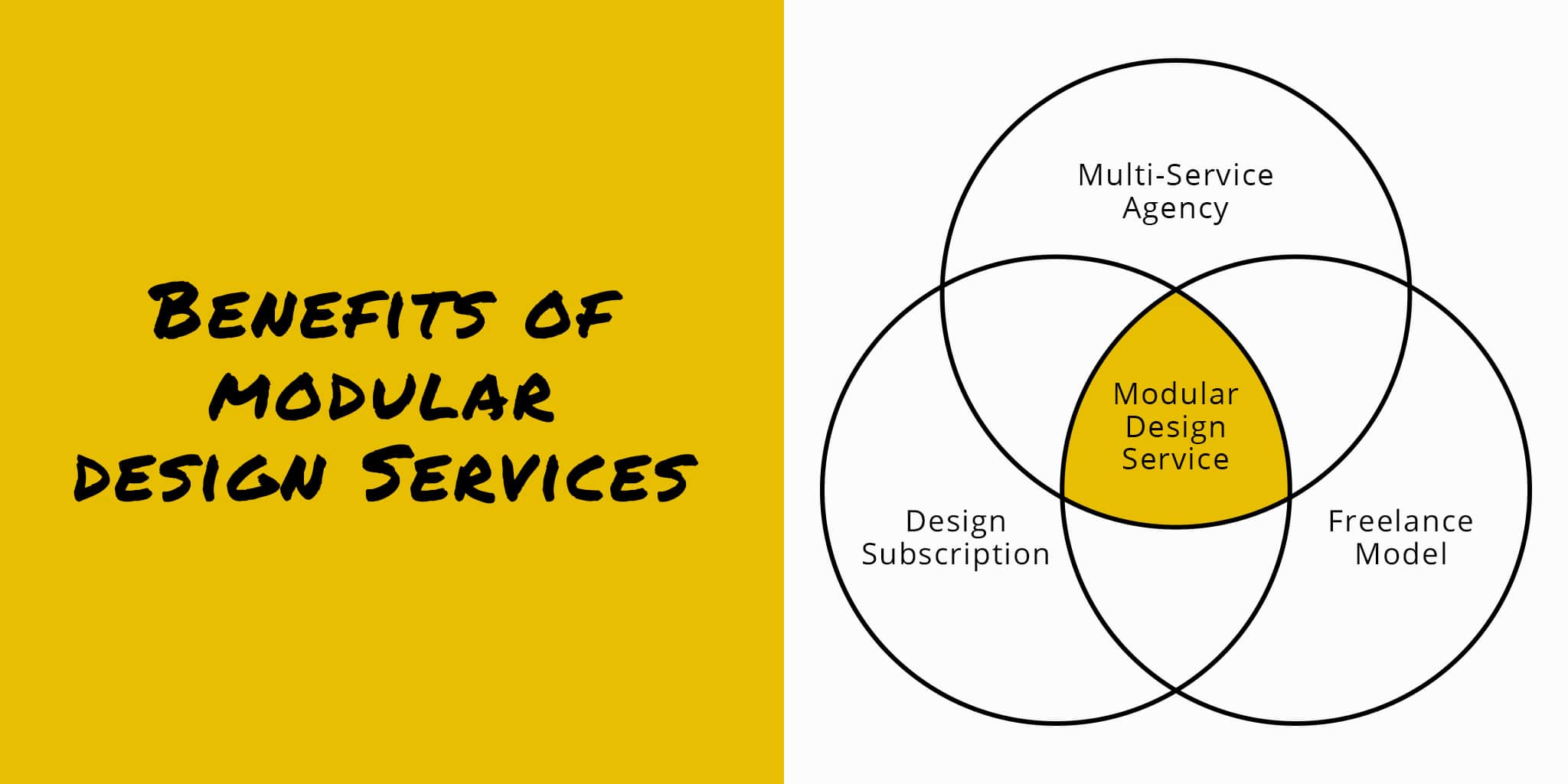
The purpose behind this concept is to simplify processes and enhance cooperation between in-house stakeholders and external service providers.
You have an idea and want a designer to provide quick input? Just send it over. Need extra design power for discovery purposes or a product launch? Increase your subscription. Facing a slow period? Easily reduce your design commitment without severing relationships.
Benefits include:
- No project scope limitations
- Scalling external services up and down to adapt to changing project needs, seize new opportunities and navigate changing operational capabilities
- Reduced overhead compared to maintaining a full in-house team
- Constant design support and creative guidance
- Shorter to no waiting times to get started
- Designers develop a deeper understanding of the client’s business over time
- Predictable budgeting
Is a Modular Design Agency Right For You?
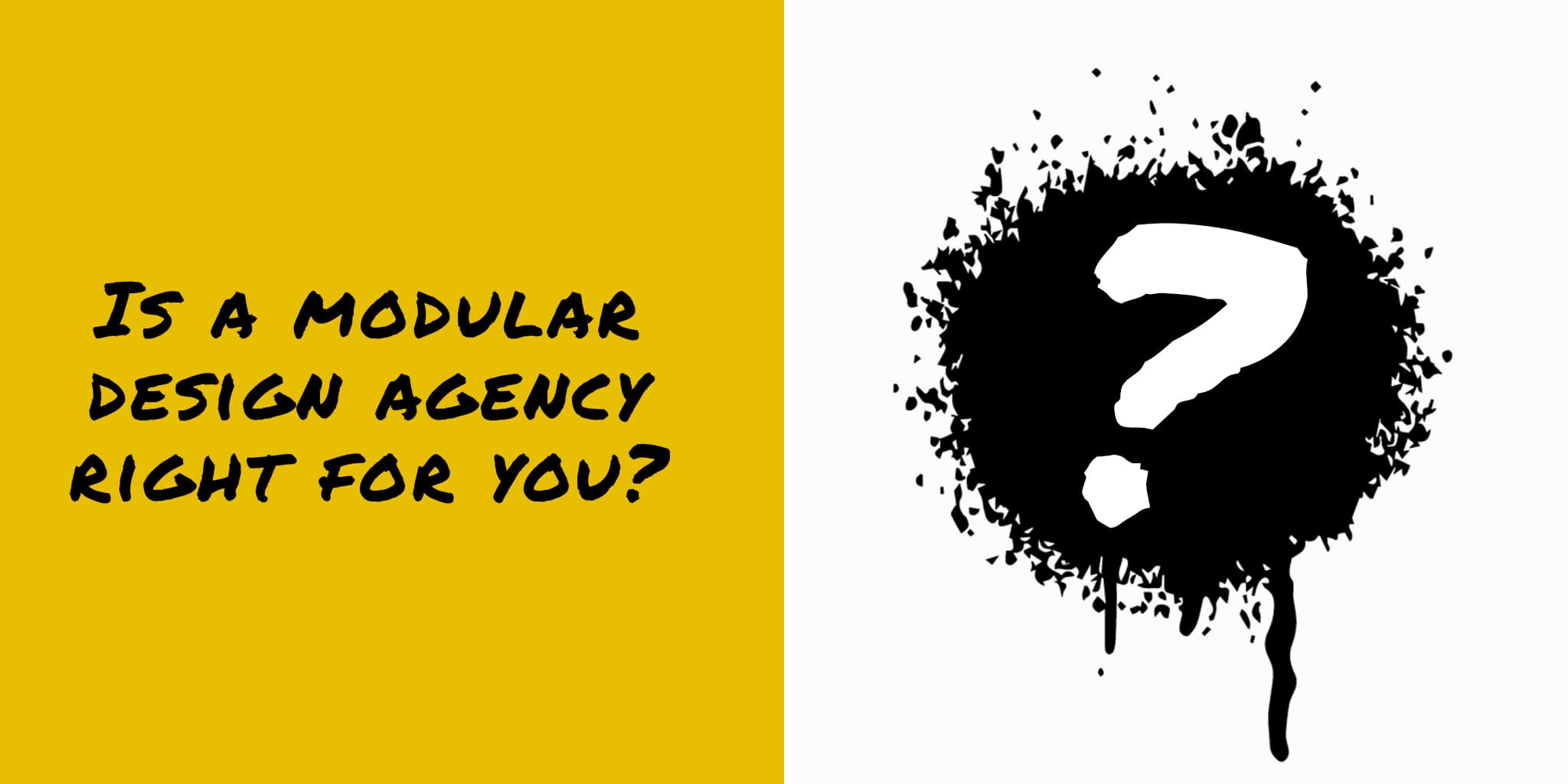
Modular Design Agencies can be an excellent choice for many companies, but they are not universally suitable. In general, businesses prioritizing innovation, continuous improvment and brand identity are prime candidates for Modular Design Agencies, as they need a constant supply of new ideas.
Conversely, project-driven companies with fixed project budgets and unfunded start-ups are better off working with traditional freelancers or agencies.
To determine if it is the right fit for your company, ask yourself:
- Do you aim to constantly improve your business and customer experiences?
- Do you lack design skills in-house?
- Do you want predictable design costs without the overhead of a full in-house team?
- Are you open to collaborating with remote design experts?
- Are you comfortable with an agile, iterative, back-and-forth approach to design?
If you’re nodding along to most of these, a modular design agency could be an excellent fit. But, there are a number of hard and soft factors that you need to consider:
Hard factor #1: Company size
The bigger the company, the greater the need for management. If a large company uses Modular Design Services, it is essential to have a central point of contact (e.g. a design manager) for the external designers to ensure smooth communication, request prioritisation and full utilisation of the service across multiple departments.
Hard factor #2: Project quantity
The value of a design subscription hinges on consistent usage. Consequently, the suitability of Modular Design Services largely depends on a company’s demand for creative expertise.
Hard factor #3: The quality dance
One challenge that comes with the fast pace of modular and subscription-based design services is maintaining quality. Where clients expect results as quickly as possible, quality suffers. Where design agencies want to be as profitable as possible, quality also suffers. The key is to focus on depth and quality rather than quantity.
Hard factor #4: In-house capabilities
If you have a fully-fledged in-house design team, modular design services only make sense to compensate for capacity fluctuations.
Soft factor #1: Cultural compatibility
The company’s work culture should be open to flexible, collaborative partnerships and agile and remote methodologies.
Soft factor #2: Trust and transparency
Both parties must be willing to cultivate a relationship based on open communication and mutual trust.
Soft factor #3: Discovery mindset
Only companies with a strong discovery mindset, eager to find new solutions and approaches, are positioned to take full advantage of a Modular Design Agency. If you are not interested in uncovering new opportunities, you do not need ongoing creative support.
Epilogue
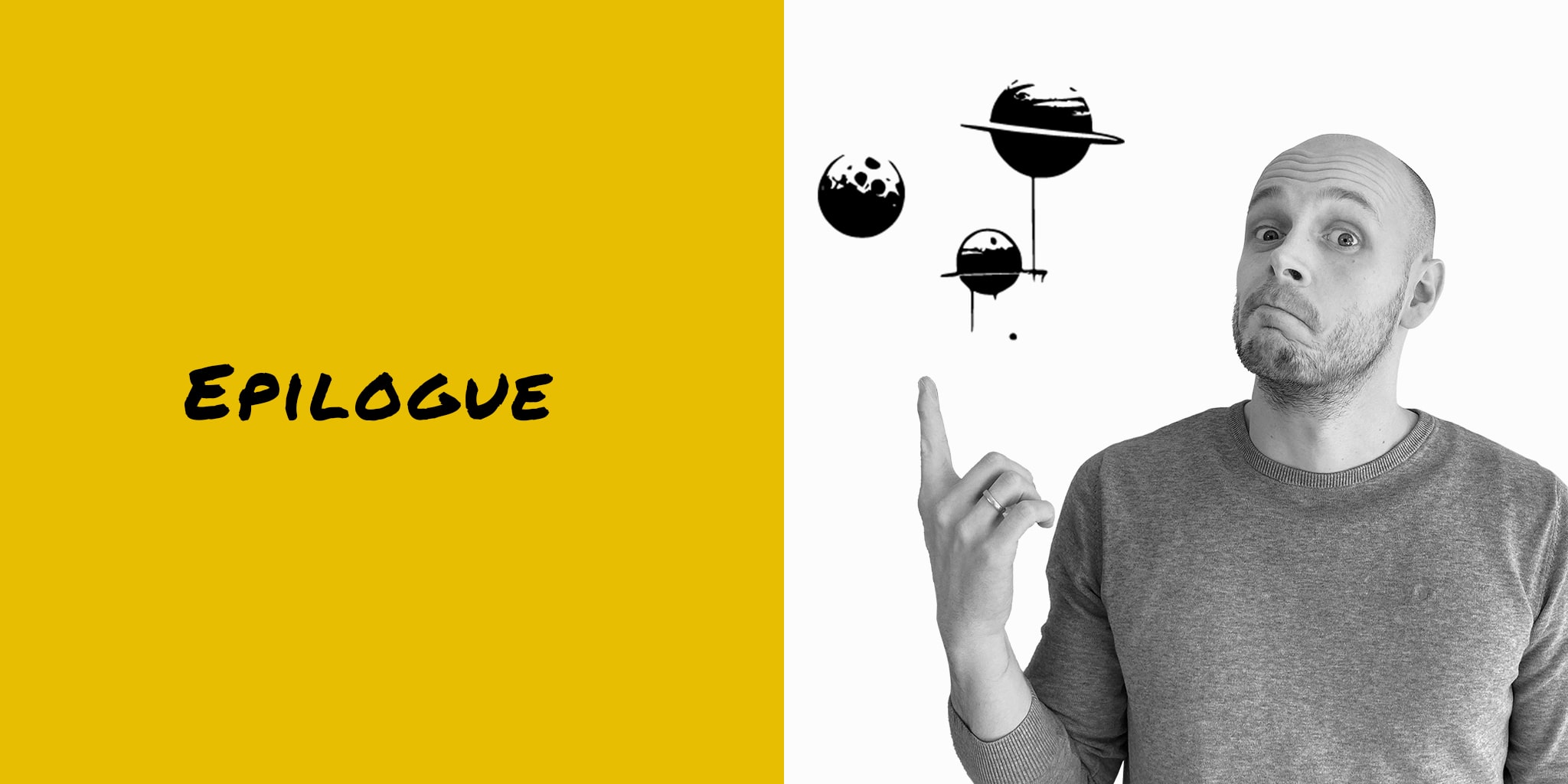
For more than a decade I have been designing products and experiences in and for leading design agencies and companies of almost every size. Time and again, I’ve witnessed promising partnerships crumble due to outdated ways of thinking. I’ve seen great projects fall apart over drawn-out negotiations, and agencies disqualified for being „too big“ or „too small,“ despite having the perfect skill AND people match. I have seen companies cut projects short due to budget pressures or arbitrary deadlines, while others have rushed through crucial steps, leaving innovative ideas on the cutting room floor.
These experiences made me wonder if there was another way. For many, Modular Design Services can be the answer, enabling businesses to finally complete all the creative work they need.


